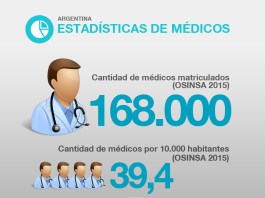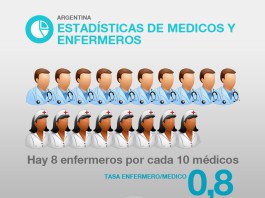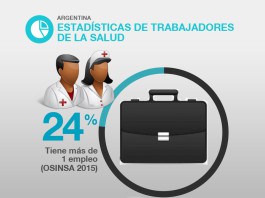CAPE TOWN (IPS) – If poor countries want to improve their health systems urgently need to decentralize and delegate medical tasks nurses and community health workers, experts recommend.
«You probably will not get more money than we have, so we must spend wisely,» said Alan Whiteside, director of the Division of Research on Health Economics and HIV / AIDS South Africa’s University of KwaZulu-Natal.
Whiteside believes it is «absolutely essential» accountable to international organizations and governments of their health expenditure to control which areas the money is going and ensure effective implementation.
«Money HIV (human immunodeficiency virus) must be used to create health systems» not only for treatment, Whiteside stressed.
The policy adviser of the International AIDS Society, Jacqueline Bataringaya, said «in our health systems there are serious deficiencies, and can not move forward without addressing them.»
The International AIDS Society was the organizer of the Fifth Conference on Pathogenesis, Diagnosis and Treatment, which concluded on Wednesday in Cape Town.
«In Africa we need a more doctors, nurses and midwives million,» said Bataringaya.
He also suggested that as funding is limited by the global financial crisis, developing countries have to identify priorities to advance. «We need to see what we can do with the money we have,» Bataringaya said.
According Whiteside, to improve health systems is key to increase the number of people working in them. For many years, Africa lamented the shortage of qualified human resources, especially because the staff migrated en masse to work in industrialized countries and receive higher wages. But little has been done to improve the situation.
«Unfortunately, despite the numbers, South Africa is still doing the same,» Whiteside said.
According to the World Health Organization, 37 percent of doctors trained in South Africa working in the industrialized world. Graduate nurses in this country are almost a tenth of the workforce in Germany, Australia, Canada, USA, Finland, France, Great Britain and Portugal.
Whiteside suggested creating a tax to governments or companies in industrialized nations who employ health workers from developing countries to offset the loss of trained staff.
But Michel Kazatchkine, executive director of the Global Fund to Fight AIDS, Tuberculosis and Malaria, defended the way in which financial assistance is used, arguing that budgets have been developed to increase the number of health workers, especially in developing countries.
«A quarter of all Global Fund resources go to support the health workforce, for example, for training, job rotation, and so on. In the last six years we invested 4,000 million dollars,» he said.
However, Kazatchkine admitted that the gap between industrialized and developing countries in providing care and treatment of HIV (which causes AIDS) countries continues to rise.
«That generates great concern. We are facing impossible dilemmas with insufficient levels of care, and no room to admit more patients,» he added.
Kazatchkine said he was optimistic about the possibility of getting more funds to devote to HIV, and promoted the idea of finding new sources of funding, like the recently launched Debt2Health plan (Debt for Health), the Global Fund.
This plan proposes to eliminate some of the debt of a developing country as long as half of these funds are spent on investments in the health system of that State.
«This is an innovative way to convert debt into active money,» said Kazatchkine.
In May, Australia was the first creditor to cancel about 60 million Indonesian commercial debt as part of this plan. Instead of paying its debt to Australia, Indonesia will invest half of that amount in its health system, with particular focus on boosting tuberculosis programs.
Another way for health systems to maximize the achievements of limited financial resources is task rotation, according to experts.
This means that nurses and health workers do not assume specialized tasks traditionally performed by doctors, as psychological counseling, treatment and care management for people with HIV.
This frees the expensive medical staff time to more serious issues, while ensuring a more timely patient care daily.
«Task shifting and community involvement are essential to overcome the lack of qualified personnel,» explained Whiteside.
To illustrate, he pointed out the example of Malawi, where trained community workers have successfully assumed particular responsibilities of caregiving, both in homes and in clinics. This relieves the workload of nurses and medicine.
These workers «are essential because they come directly to homes and communities,» added Wafaa El-Sadr, director of the International Center for Care and treatment for AIDS.
«The challenge is how to institutionalize and remunerate these new workers and how to make them an integral part of the health system,» he said.
This has been successfully done in Lesotho, where Scott Hospital started a program on HIV care and antiretroviral therapy managed by nurses, and meant for adults and children in the district.
This hospital, located in the lowlands of western Mexico, has 14 associated clinics that serve more than 900 villages.
While before there was only one doctor to cover the entire health district corresponds to the hospital, there are now nearly 100 nurses and unskilled seeing patients. Lesotho suffers from a severe shortage of health workers, with an average of five doctors and 63 nurses per 100,000 patients.
«It was a titanic task. We have a high number of HIV infections due to a 23.2 percent prevalence of the virus combined with very limited human resources. We had to be very innovative and decentralize the care of people with HIV,» he said Scott Hospital medical superintendent, Lipontso Makakole.
The change consisted of training in the area of nursing clinical issues to take medical tasks, and to train unskilled workers to provide counseling and preparation of antiretroviral treatment in order to free the nurses.
«In 2008 we initiated 37 percent more patients on antiretroviral therapy. In addition, 80 percent of adults and 89 percent of children received care for HIV. These are very favorable results showing that works healthcare led nursing, «said Makakole.
FONT
IPS News




